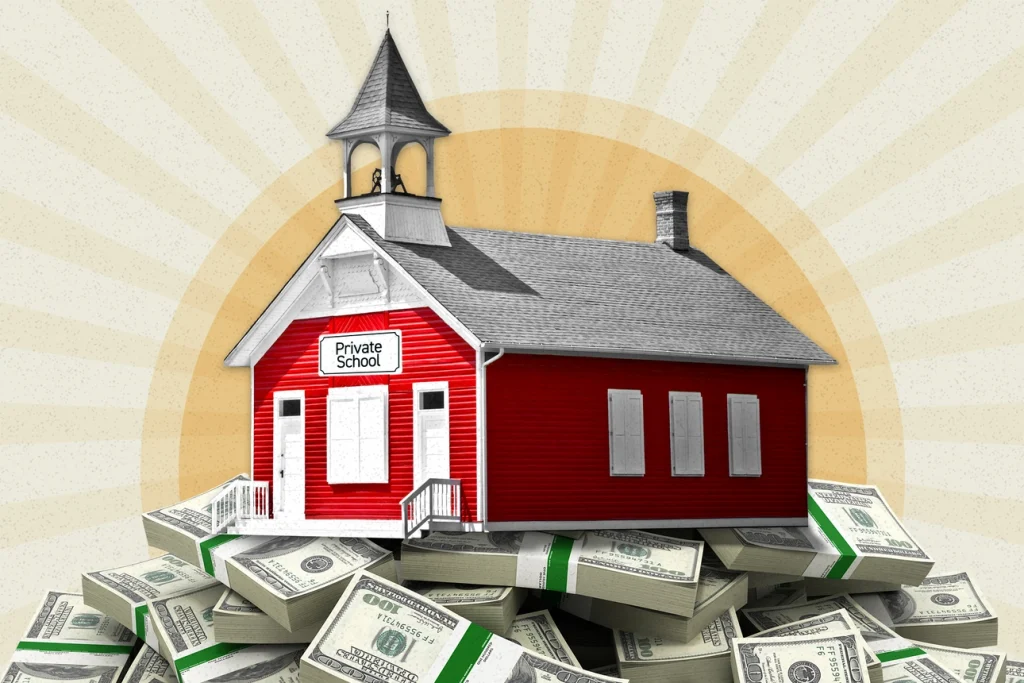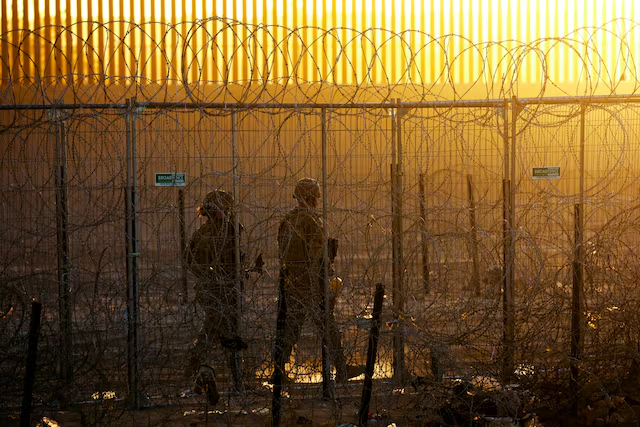Trump’s Mass Deportation Plan Faces Growing Opposition Amid Polling Shift

As former President Donald Trump continues to push his hardline immigration agenda, his proposal for mass deportations of undocumented immigrants has sparked a significant shift in public opinion, with increasing resistance from both political opponents and some within his party.
A new round of polling indicates that a majority of Americans are opposed to such a drastic approach, despite Trump’s attempts to rally his base with promises to take aggressive action on immigration if re-elected in 2024.
Trump’s mass deportation plan, a central element of his “America First” platform during his first term, would involve removing millions of undocumented immigrants from the U.S. in a swift and coordinated effort.
While he first introduced this idea during his 2016 campaign and implemented some hardline immigration policies during his presidency, his renewed focus on mass deportations in the lead-up to 2024 has intensified the debate over the future of U.S. immigration policy.
The latest polling data reveals that a growing segment of the American public is now opposed to the idea of large-scale deportations.
According to a poll released by CNN on November 17, 2024, around 58% of Americans say they disapprove of Trump’s proposed mass deportation strategy, citing concerns over the social, economic, and human costs of such a policy.
This marks a notable shift from earlier years when a sizable portion of the electorate expressed support for stricter immigration enforcement.
The strong opposition to Trump’s mass deportation plan is not limited to progressive groups or Democrats. Some Republicans are also raising concerns about the practicality and morality of such an approach.
Critics from within the GOP argue that deportations on the scale Trump envisions could destabilize communities, disrupt the workforce, and undermine America’s standing as a country built on immigration.
Additionally, some Republican lawmakers fear that the rhetoric around mass deportations could alienate crucial swing voters, particularly in battleground states with significant immigrant populations.
Trump’s plan calls for the deportation of undocumented immigrants who have lived in the U.S. for years, many of whom have established families and built lives in the country.
The policy would also target individuals who have been convicted of crimes but could include those who have not committed any offenses beyond their immigration status.
This broad approach to immigration enforcement has drawn criticism from human rights organizations, which argue that it would tear apart families and violate the basic principles of fairness and due process.
Supporters of Trump’s deportation plan, however, argue that mass removals are necessary to curb illegal immigration and restore the rule of law. They point to the growing number of undocumented immigrants in the U.S. and argue that unchecked immigration is putting a strain on social services, healthcare, and public schools.
For Trump’s base, the promise to crack down on illegal immigration remains a key element of his appeal, particularly as he casts himself as the defender of American workers and sovereignty against what he describes as the “invasion” of migrants.
Despite the strong opposition from various quarters, Trump’s tough stance on immigration remains a central part of his 2024 campaign. The former president has framed immigration enforcement as a national security issue, positioning himself as the candidate who will “restore order” at the southern border.
His proposals for a border wall, expanded surveillance, and greater use of law enforcement to round up undocumented immigrants continue to resonate with segments of the electorate who view immigration as a top priority.
However, as the 2024 election draws closer, Trump’s position on immigration is beginning to face challenges. Many swing-state voters, particularly suburban women and moderates, have expressed discomfort with the notion of mass deportations, arguing that it is an inhumane policy that undermines the values of fairness and compassion.
Moreover, there is growing concern about the economic ramifications of such a large-scale policy, as many undocumented immigrants contribute to key sectors of the economy, including agriculture, construction, and service industries.
The issue of immigration will likely remain a major point of contention as the 2024 race heats up. While Trump’s mass deportation plan continues to energize his base, the broader electorate appears to be growing wary of extreme measures.
As polling data shows a significant divide over the policy, the future of Trump’s immigration agenda could depend on his ability to balance his hardline stance with the concerns of swing voters who are looking for more pragmatic solutions.
In the coming months, both Trump and his opponents will likely face increasing pressure to offer more detailed, concrete plans on how to address the complex issue of immigration in a way that balances enforcement with humane treatment.
While Trump’s mass deportation plan remains a rallying cry for his supporters, its unpopularity among the broader public signals that immigration may continue to be one of the most contentious issues of the 2024 election cycle.






